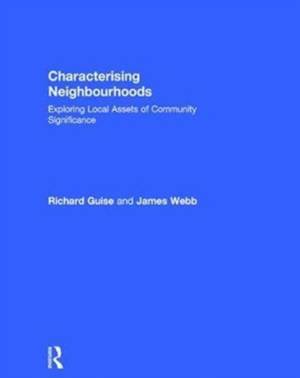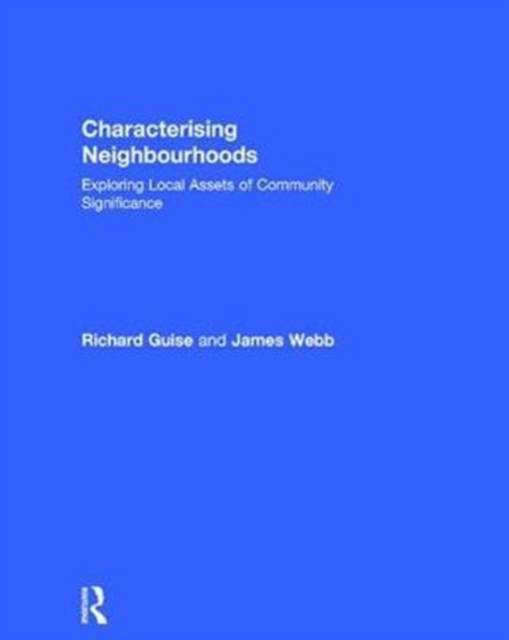
- Afhalen na 1 uur in een winkel met voorraad
- Gratis thuislevering in België vanaf € 30
- Ruim aanbod met 7 miljoen producten
- Afhalen na 1 uur in een winkel met voorraad
- Gratis thuislevering in België vanaf € 30
- Ruim aanbod met 7 miljoen producten
Characterising Neighbourhoods
Exploring Local Assets of Community Significance
Richard Guise, James WebbOmschrijving
It is increasingly important to define what constitutes the unique character of our neighbourhoods, in order to identify what we value and should protect, to pinpoint areas for improvement and places which could be enhanced through sensitive change. But how do we define 'character' or a 'sense of place'? How do we appraise the setting and site of a development area, in order that the essential character is retained and reflected in the design of new development? How can these qualities be communicated to decision makers and involve communities?
Characterising Neighbourhoods provides an accessible and richly illustrated guide to the practical methods of appraising neighbourhoods which are precise, well informed and engaging. It demonstrates how characterisation is used as an evidence base for the planning and management of neighbourhoods and urban areas.
The core focus is on a proven characterisation method developed and used by the authors and used by community groups, schools, planning and urban design students and professionals. It creates a common language used by these groups in evaluating places.
This guide provides a wealth of supporting information, including; briefing on the recognition of local architectural styles, periods and materials, detecting the influence of historic street layouts and property boundaries, townscape concepts such as scale and enclosure, and topographical characteristics.
Characterising Neighbourhoods is a valuable resource for practicing planners, urban designers and environmental professionals as well as students in these subjects.
Specificaties
Betrokkenen
- Auteur(s):
- Uitgeverij:
Inhoud
- Aantal bladzijden:
- 254
- Taal:
- Engels
Eigenschappen
- Productcode (EAN):
- 9781138819948
- Verschijningsdatum:
- 18/10/2017
- Uitvoering:
- Hardcover
- Formaat:
- Genaaid
- Afmetingen:
- 219 mm x 276 mm
- Gewicht:
- 1087 g

Alleen bij Standaard Boekhandel
Beoordelingen
We publiceren alleen reviews die voldoen aan de voorwaarden voor reviews. Bekijk onze voorwaarden voor reviews.











